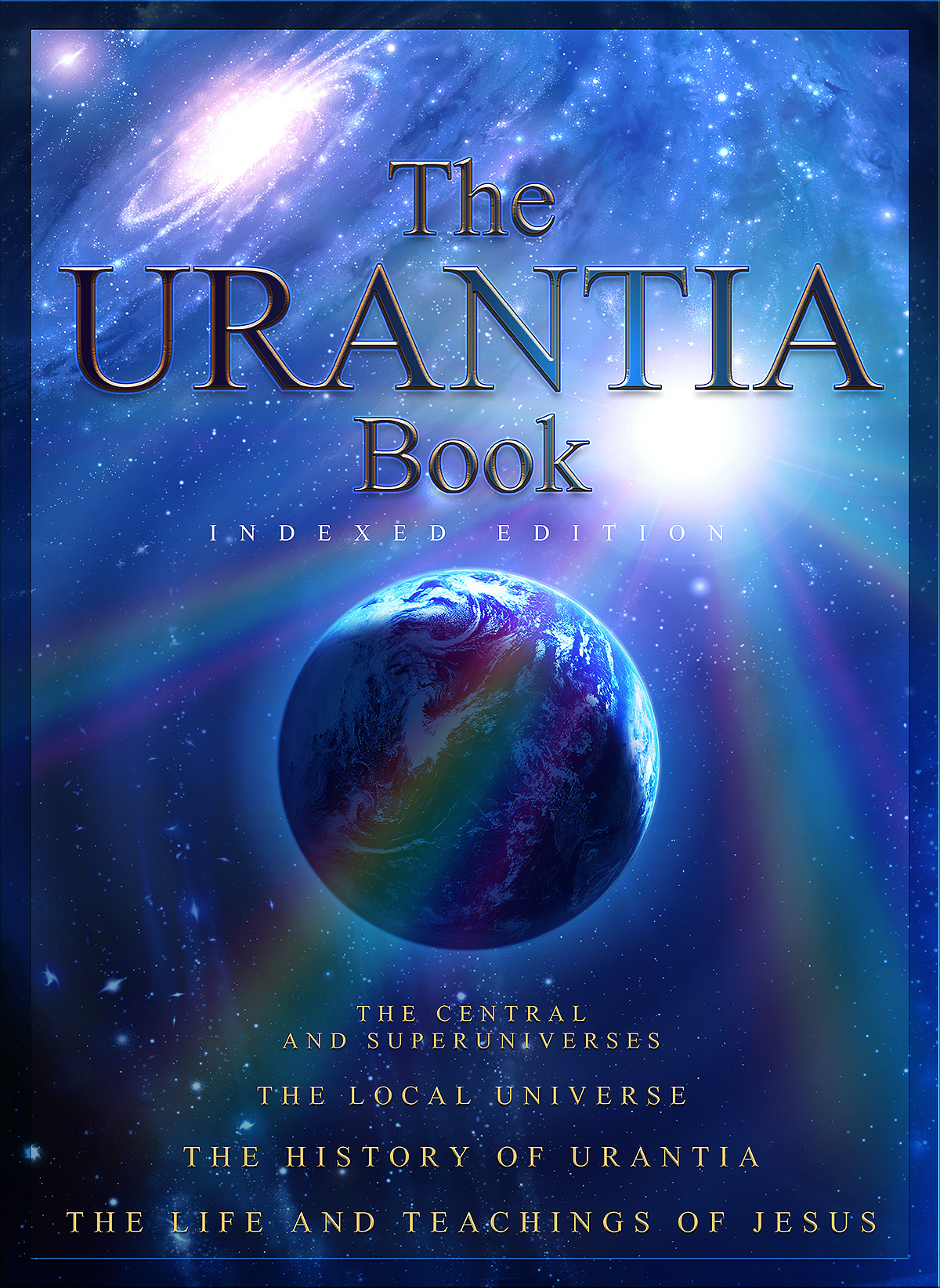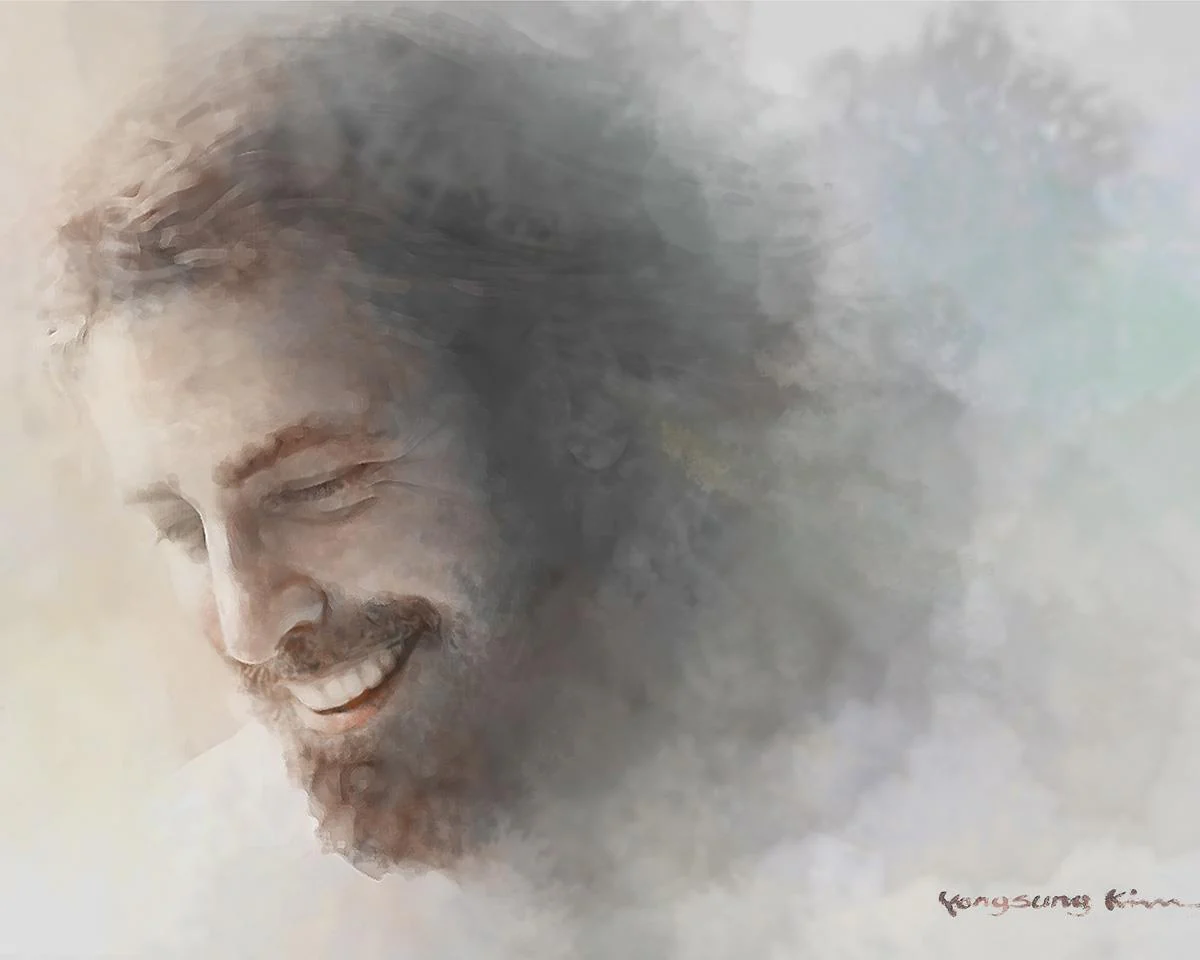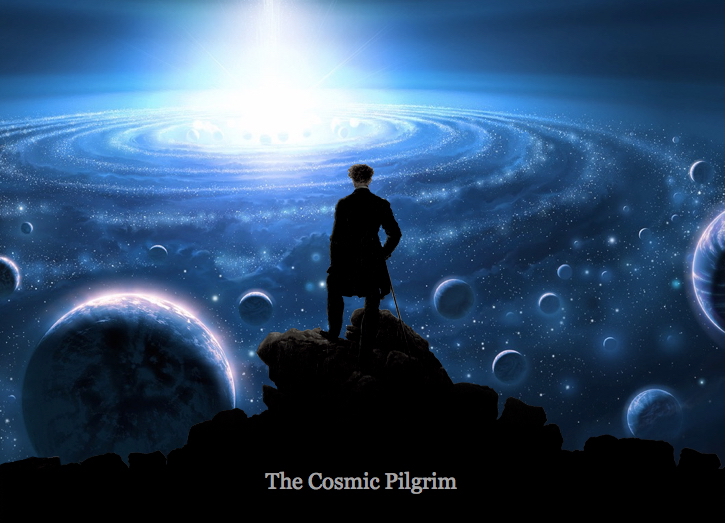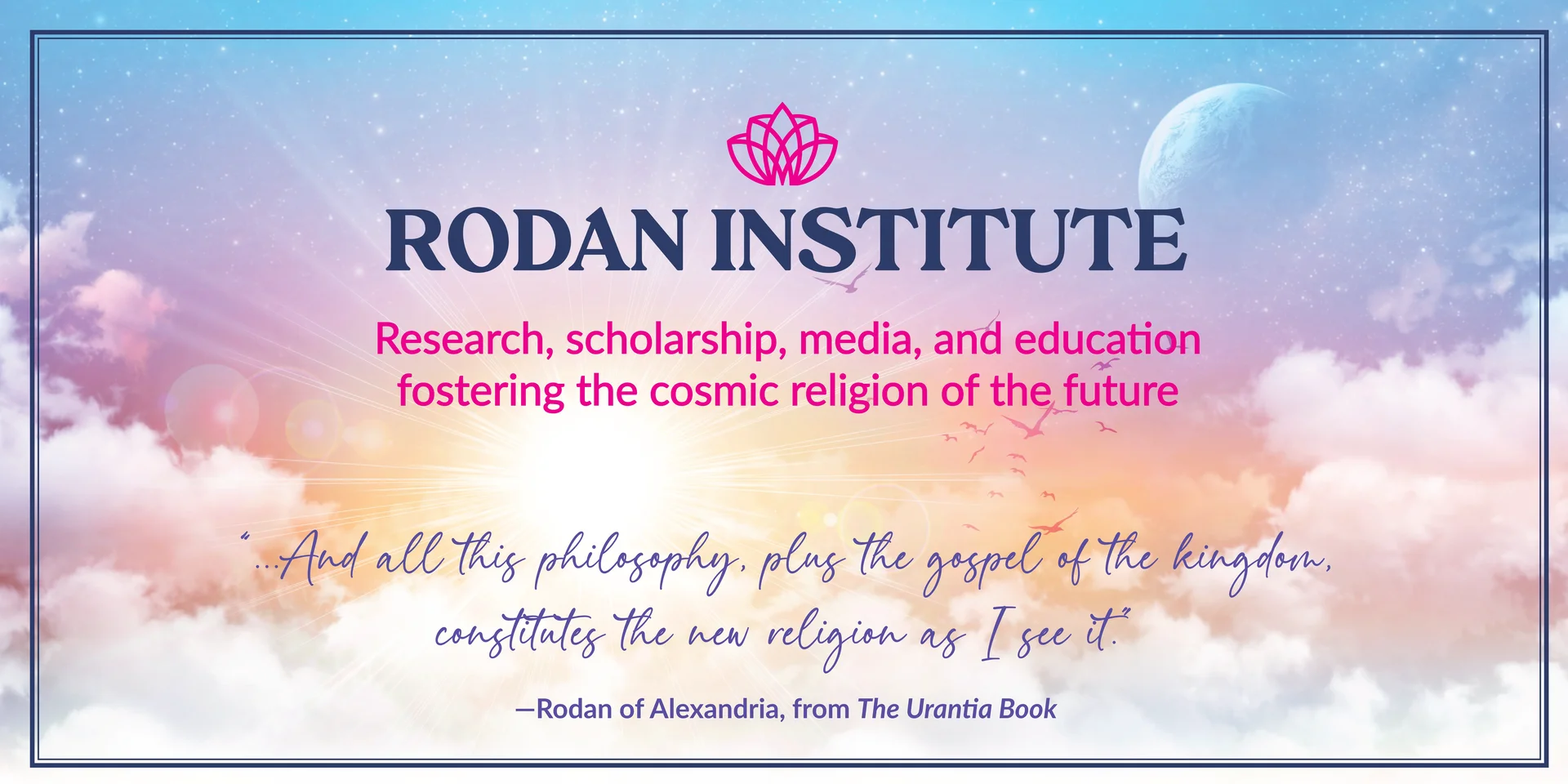Rodan was a distinguished first-century Greek philosopher whose name had once been lost to history. We first learned about this ancient teacher from the 2,096-page text called The Urantia Book (1955). Also known as the Urantia Revelation or UB, over one million copies have been distributed. This revelatory teaching expands our knowledge of Jesus, illuminating his teachings against the backdrop of a futuristic cosmology and a revelatory new planetary history. The UB's lovely narrative about Christ, laid out in its dramatic 775-page final section, purports to correct the New Testament record. It also affirms core Christian moral teachings and Jesus's claim of divinity, while introducing the critical figure of Rodan. This inspiring story—now adapted to our modern scientific worldview—will powerfully catalyze the cosmic religion of the future.


Rodan's inspiring grasp of the new gospel
Our focus remains on the superb life and teachings of Jesus as newly revealed. But the Institute takes special inspiration from the story of Rodan, who taught philosophy in Alexandria, Egypt, the ancient world's greatest educational center. Rodan traveled to meet Jesus in person, immediately recognized his divinity, and embraced his startling new teachings. Rodan was uniquely able, among the earliest disciples, to combine the riches of Greek philosophic tradition with the love-saturated values of the new gospel. The Urantia Book singles him out as a crucial early teacher and evangelist by providing two entire Papers (160 and 161) that summarize his philosophy of living in relation to the gospel message. This makes Rodan the only other contemporary of Jesus whose religious teachings are highlighted in this way.
We choose to follow Rodan's lead by highlighting his quest for spiritual enlightenment, supported by advanced research, advocacy for planetary transformation, openness to new revelation, and dynamic support for evangelists, teachers, and ministers.

Why is a new story of Jesus needed now?
The UB's novelistic account of Jesus's life is purportedly authored by superhumans with access to the original facts—while also building upon eye-witness human accounts. It fills in the missing years of Jesus' life for the first time, as well as offering almost hour-by-hour coverage of key events that are only briefly reported upon in the Bible. These include the great sermons and parables, the miracles of healing, the training of the Apostles (including a corps of twelves female Apostles), the crucifixion, the resurrection, and Pentecost.
A new story of the universe and of our planet "Urantia"
The Institute believes a new era will dawn once the new story of Jesus is studied along with the UB's new story of the universe, including . . .
- an advanced Trinitarian theology and futuristic universe cosmology
- revolutionary new accounts of angelology, angelic spheres, and the billions of inhabited worlds
- our planet's tragic history and pre-history
- the nature and evolution of the soul, and an inspiring new integral spirituality
- Our eternal life of ascension after death, when we become cosmic pilgrims!

Rodan as founder of the theosis tradition
We can infer that Hellenistic Christianity and the later Byzantine Christian tradition was founded by Rodan and his students. Their more holistic and experiential grasp of the gospel became the source of the Eastern Christian practice of theosis or "deification"—the fervent quest for direct contact (and ultimate fusion) with the Indwelling Spirit of God. This practice of the contemplation of the divine presence especially arose in the Christian East during the course of many centuries of response to Jesus' instruction to "be perfect even as your Father in heaven is perfect" (Matt 5:8), a primary teaching also emphasized throughout the Urantia Revelation.
In this same spirit, we at Rodan Institute foster this inward quest for theosis, especially through the practice of stillness and the bestowal of loving service on others and on building a sustainable planet for all. We also support the advanced comprehension of the revealed new life of Jesus against the backdrop of a modern cosmology—accompanied as it is by a revelatory update of the history of our world and the grand universe. We now have a corrected and expanded record that allows us to build on revered biblical texts and also to modernize the sacred traditions of the Eastern Church and all other denominations of Christianity—or even other faiths that are open to the enlightened religion, modern cosmology, and the quest to be the advanced civilization of the future.
